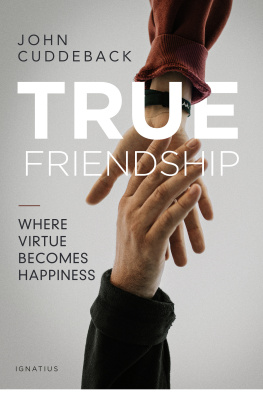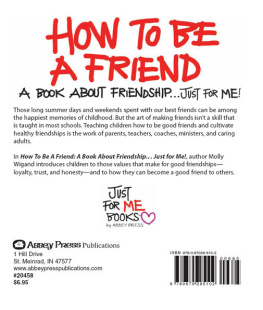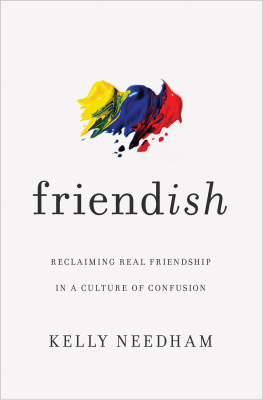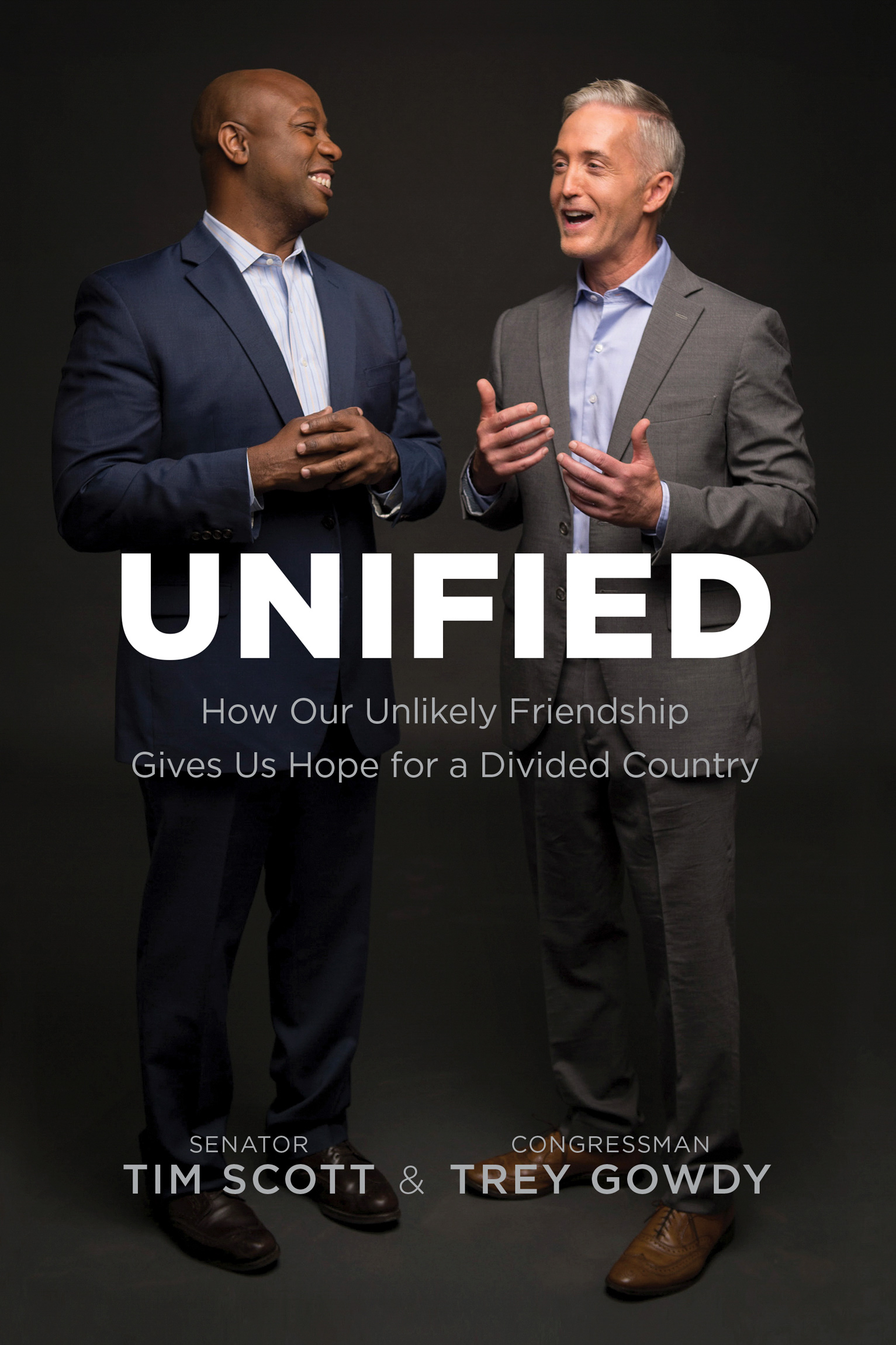Visit Tyndale online at www.tyndale.com.
Visit Tyndale Momentum online at www.tyndalemomentum.com.
TYNDALE, Tyndale Momentum, and Tyndales quill logo are registered trademarks of Tyndale House Publishers, Inc. The Tyndale Momentum logo is a trademark of Tyndale House Publishers, Inc. Tyndale Momentum is the nonfiction imprint of Tyndale House Publishers, Inc., Carol Stream, Illinois.
Unified: How Our Unlikely Friendship Gives Us Hope for a Divided Country
Copyright 2018 by Timothy Scott and Harold Watson Gowdy III. All rights reserved.
Cover photograph copyright by Alice Keeney Photography. All rights reserved.
Designed by Mark Anthony Lane II
Edited by Dave Lindstedt
Published in association with the literary agency of WordServe Literary Group, www.wordserveliterary.com.
All Scripture quotations, unless otherwise indicated, are taken from the Holy Bible, New International Version, NIV. Copyright 1973, 1978, 1984, 2011 by Biblica, Inc. Used by permission. All rights reserved worldwide.
Scripture quotations marked KJV are taken from the Holy Bible, King James Version.
Scripture quotations marked NASB are taken from the New American Standard Bible, copyright 1960, 1962, 1963, 1968, 1971, 1972, 1973, 1975, 1977, 1995 by The Lockman Foundation. Used by permission.
For information about special discounts for bulk purchases, please contact Tyndale House Publishers at , or call 1-800-323-9400.
ISBN 978-1-4964-3041-0
ISBN 978-1-4964-3044-1 (ePub); ISBN 978-1-4964-3043-4 (Kindle); ISBN 978-1-4964-3045-8 (Apple)
Build: 2018-02-01 15:59:43 EPUB 3.0.1
To Artis Ware, Tims grandfather, who grew up in a segregated South and a polarized world, but who learned to love everyone. His faith and his perspective were transformational.
To Jessie Lee Evans, Treys grandmother, who shared with Artis a love for South Carolina and a profound faith in God.
In the segregated age in which they lived, the two never met. But two generations later, their grandsons became the best of friends.
Heres hoping that Artis and Jessie Lee have met each other on the other side. May what they now have in common overwhelm any differences.
Prologue
TIM
June 17, 2015, a day that would become a turning point in our nations history, began as a typical summer day. In both my hometown of Charleston, South Carolina, and in Washington, DC, where I work, that means hot and sticky. June is one of the least glamorous months in the halls of Congress. The days are long, the work is intense, and there is no downtime as we work to complete our legislative priorities by the Fourth of July. The month is filled with the gyrations, machinations, and frustrations of serving in Congress while important legislation languishes.
There was nothing unusual about that particular Wednesday evening. I had my customary dinner at the Capitol Hill Club salmon, salad, and iced tea with fellow South Carolinian Trey Gowdy, who is also my closest friend in Congress. We talked through a number of issues before he went back to his Capitol Hill office and I went to my apartment, where my bedroom had become a makeshift home office. I began making some calls, and I was mid-conversation with someone when I heard the familiar ping of call-waiting. When I switched over to take the incoming call, I heard eleven words I will never forget.
Tim, theres been a shooting in Charleston. Its Clementa Pinckneys church.
Mother Emanuel.
I immediately texted my friends back in Charleston to see what I could find out, but details were scarce. There was an active crime scene with an assailant on the run, but very limited information beyond that.
Soon the details began to unfold: The shooter was white, and the victims were black. The attack was racially motivated. The victims were all members of a Wednesday night Bible study. I heard that several people had been killed, but nobody could confirm their identities.
Numb with disbelief, my mind filled with questions that cant be answered this side of heaven. I felt like a ton of bricks had fallen on me, breaking every one of my bones. Everything hurt. I needed to reach out to someone. I needed a friend.
I grabbed my phone and speed-dialed Trey. Given the news coming out of Charleston, a white congressman from the Deep South might seem like an unlikely person for me to call. But I knew he would understand, and I knew hed be there for me.
TREY
There are times when a phone call can only mean bad news. I had barely returned to my Capitol Hill office after dinner when my cell phone lit up. Tim Scott was calling.
Thats curious, I thought. Tim doesnt typically call just to chitchat not at this hour, and not after we just spent two hours together at dinner.
What could he have possibly forgotten to tell me minutes ago that couldnt wait until morning or couldnt be handled by text?
Yes, sir, I answered.
Trey, theres been a shooting in Charleston.
Where? Who? Why? When youre trained as a prosecutor, asking questions is the natural first response. Its impossible to get that out of your system, no matter how long youve been out of the courtroom.
It was Mother Emanuel Church, Tim said. I know the pastor.
What happened? Was the shooter apprehended? Do the police have a motive?
I dont have all the details, but I know its bad, Trey. Its really bad.
1
Welcome to Congress
Friendship Begins with Trust
TREY
The early days of the 112th Congress felt exciting and occasionally chaotic. Our freshman orientation began in late November 2010, after the new members of Congress were elected but before our swearing-in in January. We stayed in a hotel in Washington, DC, and attended meetings, seminars, and panels to learn about the inner workings of government in general and Congress in particular. Current members of Congress taught or facilitated many of the classes, and they offered guidance on everything including how to structure your office, how to handle travel to and from your district, and how to stay within your office budget.
There were lots of instructions about the procedures governing the floor of the House and all committee work, including strict floor-of-the-House rules about when we could discuss legislative matters, how long we could talk, and even what we could talk about. We had to select an office within one of the three House office buildings and hire the women and men who would work with us in our offices. For those of us who had never served in any legislative body, the learning curve was steep and sometimes confusing.
Congress has its routines, which we would come to know with time and practice, but in those early days, it was all so new. Like walking onto the floor of the House for the first time. Voting for the first time. Getting your member pin and voting card. Seeing your name for the first time on a plaque outside your office.
I will always remember the night our freshman class had dinner in Statuary Hall. I could feel the history. The statues and portraits of yesteryear were all around us. It felt almost as if Americas founders were watching and listening. We were walking in the same hallways and meeting in the same rooms where history had been made and where it would likely be made again.
At the same time, an undercurrent of chaos raced beneath the excitement. Nobody grades on the curve in Congress, and theres not a great deal of margin for those who dont know the ropes, rules, and protocols. Your constituents deserve the same level of representation as those who live in the most senior members districts, so you must absolutely hit the ground running. You have to assemble staff both in your home district and in Washington. You have to create a plan and a process and a protocol for every conceivable scenario, including how to handle calls for assistance from veterans, seniors, and people seeking passports, as well as calls from those who have insight into particular pieces of legislation. Theres a lot to learn, a lot to manage, and a lot to take in.










